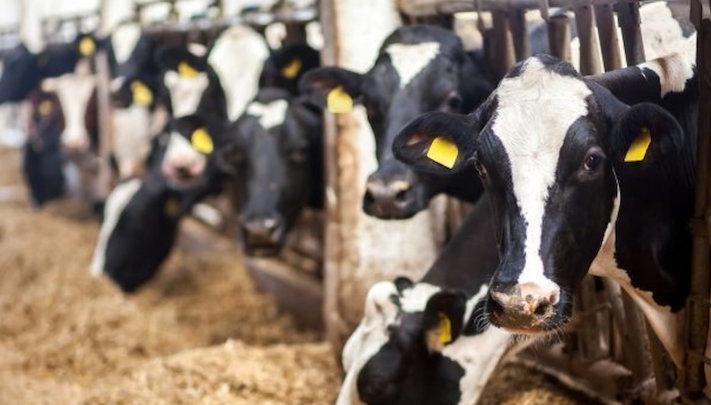FG’s $2.5bn investments drive seen lifting dairy farming – Tinubu
President Bola Tinubu on Wednesday said the Federal Government has secured a $2.5 billion investment commitment to establish six modern meat-processing factories — three poultry facilities, two beef facilities, and one pork facility — across Nigeria within the next five years.
The President, who noted that Nigeria has huge untapped potential in milk and dairy production, wondered why the country spends about $1.5 billion annually on importing such products, describing it as “a paradox that we must correct.”
He said the investments will also provide technical support for local producers through a partnership with JBS, the world’s largest meat-processing company.
Tinubu stated this at the Arla-Dano Open Day held at the Arla Farms in Damau, Kubau Local Government Area of Kaduna State — an initiative of the Kaduna State government aimed at driving investments in the livestock sector.
The President described Nigeria’s annual milk production of 0.7 million litres as grossly inadequate, falling far below the amount required to meet the nutritional needs of its population.
“Our average per capita consumption of 8.7 million litres of milk per year is not only well below the global average but also alarmingly lower than the World Health Organisation’s recommended intake of 210 litres per person annually.
Read Also: Presidency hails Senate’s confirmation of new service chiefs
At the farm level, the productivity gap is just as stark — the average milk yield of our indigenous cows is only 0.5 to 1.5 litres per day, compared to the global average of 6.6 litres.
Furthermore, the country spends over $1.5 billion annually importing milk and dairy products, despite having millions of cattle and capable producers,” he said.
Tinubu described the establishment of the Ministry of Livestock Development as part of a clear vision to unlock the potential of Nigeria’s livestock value chains, reduce dependence on imports, mitigate farmer-herder conflicts, and ensure nutrition and prosperity for citizens.
“Today, that vision is taking shape through investments such as the Arla Farm, as well as collaborations and reforms that are already yielding results,” he added.
The President commended the Kaduna State government for transforming the Damau community into a dairy hub in Nigeria.
The area hosts the Arla Farm, the Damau Household Milk Farm, and the Dairy Development Projects.
The Damau Household Milk Farm is a project initiated by the Kaduna State government and implemented in collaboration with investors and development partners. It involves the settlement of 1,000 households and the provision of improved cows, pasture, veterinary services, and other social amenities, while Arla serves as the off-taker of milk from the cows.
The Danish government is supporting the initiative by sponsoring two dairy development projects aimed at building the capacity of local producers and improving their livelihoods.
One of the projects — the Partnership for Green and Productive Dairy in Nigeria — seeks to entrench climate-resilient dairy production among Damau Household Milk Farm beneficiaries. The second project, titled Sedentarisation and Climate Change Resilience in Nigeria, studies and documents the learnings from the Damau Household Milk Farm.
According to the President, the Arla-Dano Open Day, held at the Arla-owned farm, remains a significant event that showcases the strides made by Arla Foods in Nigeria’s dairy sector.
“This event brings together stakeholders, farmers, and partners to highlight achievements, share knowledge, and foster collaboration in the dairy industry. Since its inception, the Arla-Dano Open Day has made a significant contribution to promoting dairy farming practices, enhancing productivity, and improving the livelihoods of those involved in the sector.”
He also revealed that early last month, the EU-VACE TARED Project, with funding of €18.3 million, was launched.
“The Agriculture Value Chain Facility – Transformative Agricultural Systems for Rural Economic Development Project, in partnership with the European Union, promotes climate-smart agriculture while providing technical support and market access to our farmers, thereby boosting productivity in livestock, cocoa, ginger, and tomato production.
Similarly, we also hosted a high-level National and Sub-regional Investment Forum in September, under the FAO Hand-in-Hand Initiative.
The forum focused on mobilising investment to transform Nigeria’s food systems through five high-impact value chains — tomato, cassava, maize, dairy, and fisheries — with the overarching goal of eradicating poverty, ending hunger, and building resilience in rural communities.”
He stated that the inclusion of dairy in this programme underscores the strategic importance the government attaches to improving milk production, processing, and distribution in Nigeria.

